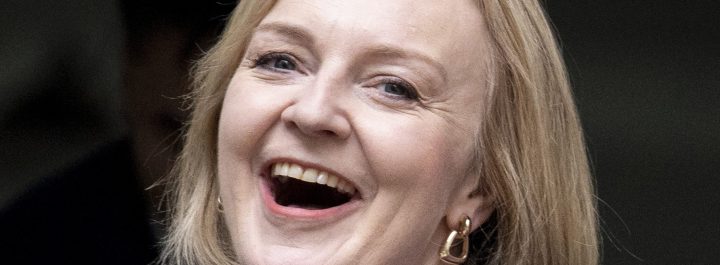AFTER THE BELL
Liz Truss and the fading dream of the Thatcherite revolution

Who uses words like ‘deffo’? Apparently, @LizTruss does. And by @LizTruss, I don’t mean the new Prime Minister of the UK, but rather Liz Trussell, who long ago chose the Twitter handle @LizTruss.
Inevitably, Liz Trussell was mistaken on Twitter for Liz Truss the politician, whose Twitter handle is @trussliz.
Swedish Prime Minister Magdalena Andersson offered her congratulations to the wrong Liz, saying: “Sweden and Great Britain will continue our deep and extensive cooperation. It is important to our citizens, economies and security.” To the delight of many, Trussell replied: “Looking forward to a visit soon! Get the Meatballs ready.”
When someone suggested there must be a way the new Prime Minister could be appointed via Twitter and the Queen would then accidentally appoint @LizTruss, Liz Trussel replied, “Yes!!!!!! Me & Queen Liz would deffo be besties.”
One of the joys of the UK is the great sense of humour of its citizens, which, as it happens, includes observing the process of becoming Prime Minister.
As a parliamentary democracy, parliamentarians have enormous power in the selection of leaders, and Conservative Party MPs have used this power with extraordinary alacrity recently. As a consequence, Truss will be the third UK Prime Minister in the space of six years.
A BBC interviewer suggested this morning that becoming Prime Minister between elections is a bit like becoming a football manager mid-season – you rarely inherit a winning team.
The bookmakers are already laying odds that her premiership will be shorter than that of Theresa May, who served for just under three years. William Hill is giving 50-1 odds that she will be the shortest-serving Prime Minister. The reason is that Truss takes over a party in a fractious quandary.
First, she actually got fewer votes from party MPs than her opponent Rishi Sunak – her victory was decided by the party rank and file. One group of opponents will surely galvanise around him; another thinks former prime minister Boris Johnson should never have been ousted; another consists of MPs elected in traditionally Labour-supporting constituencies, whose supporters may flip back to Labour faced with Truss’ Thatcherite inclinations; and the last group are the hardline Brexiteers who may distrust Truss – who initially backed “Remain”.
So, that’s the party she takes over. What about the economy? Well, that’s even worse.
Visit Daily Maverick’s home page for more news, analysis and investigations
As the Wall Street Journal delicately puts it, “Britain’s slowing economy is poised to enter a recession, inflation is at its highest rate in decades and households are facing crippling energy bills as a consequence of the war in Europe.
“Productivity growth has dropped to half the rate it was in the early 2000s, real wages are falling, the pound is nearing record lows and an ageing population is placing a growing strain on public services, even as the government tries to rein in the public spending that soared during the Covid-19 pandemic.”
I think this is slightly theatrical. The UK economy is not meaningfully in worse shape than most countries in Europe. It’s true the pound is fairly close to parity with the dollar, but the euro has dipped below parity, which last happened 20 years ago. But it is going to be tricky, and the electorate is apprehensive.
Polls show that only 12% of respondents think Truss will make a “good” or a “great” Prime Minister, but of course she has only been in office a few hours. Behind this all, I suspect, sits a big problem.
Truss models herself and her economics on Margaret Thatcher; her opponent Rishi Sunak oversaw big public spending increases and represents soft Toryism. It’s one thing for Truss to support Thatcherite economics, it’s another to live in her era.
When Thatcher took over, public spending was around 45% of GDP, strikes were commonplace and huge chunks of the British economy were owned by the state. By the end of Thatcher’s period in office in 1990, public spending was around 35% of GDP. Spending did creep up during the Labour years, and absolutely exploded over the past two years in response to the Covid crisis.
But more broadly, Thatcherism has gone mainstream: even under Labour governments, public spending was higher, but was not generally outrageous, and very few of the state enterprises privatised by Thatcher have gone back into public ownership.
My guess is that what is happening in the UK (and you can see it slightly in Italy too) is what FT writer Janan Ganesh calls “the atomisation of modern life”. To devotees, politics is no longer a mere interest, but a source of identity. Party faithful “crave less a leader than a messianic shepherd”. Hence party faithful over-index passion, vision, rhetoric and romance, he writes.
But that leaves out a significant majority who are just looking for functional leaders with good intentions and a pragmatic sensibility.
You can’t help but wish any leader “good luck” on their first day in office, but to succeed, Truss might need to drop the Thatcherite pose and just be sensible and normal.
Is that too much to ask? Probably. BM/DM



















Comments - Please login in order to comment.